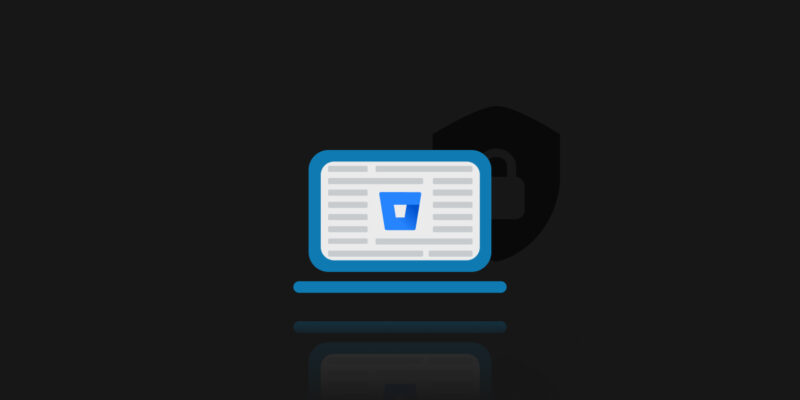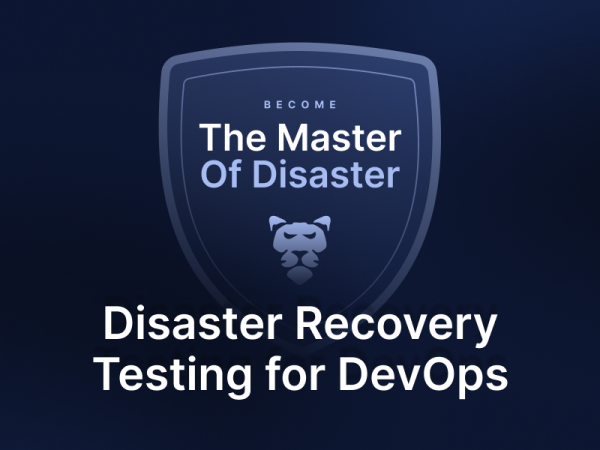
3 Best Methods to Back Up and Restore Repositories and Metadata in Bitbucket Cloud
Today it’s a common practice for companies and their developers to use Bitbucket Cloud as a storage for important vital data, such as documentation, source code, and history changes. The loss of this critical data stored in Bitbucket can lead to immense financial costs and interruption of the software development process. There is a likelihood that lost data cannot be recovered, which can result in a breach of security standards.
There are numerous reasons why some problems can arise with recovering data stored in Bitbucket Cloud. They are:
- human error
- problem with the functioning of Bitbucket Cloud services
- deletion of user accounts
- overwriting of data
- ransomware attack
To prevent these costly errors, you may consider the Bitbucket Cloud backup option. Regular data backups are one of the most important elements of your company’s security and compliance.
Read the following article to learn how you can back up data stored in Bitbucket Cloud. And find out several methods to ensure the security of your repositories and related metadata.
How Atlassian manages Bitbucket Cloud backup?
Atlassian runs automatic snapshot backups of all the data they have on its platform. Those snapshots the service provider retains for 30 days which allows it to perform a point-in-time data restoration if needed… Sometimes outages happen even to the most trustworthy services, like Atlassian.
Let’s get back to the topic. Here it’s worth mentioning the Shared Responsibility model. According to it Atlassian takes care of its service availability and recoverability and the need to back up repositories and metadata therefore falls on your company. So, it is you who is responsible for data recovery if something goes wrong with your Bitbucket environment. How to be sure that your Bitbucket repositories and metadata are recoverable and constantly accessible? Backup… It’s the only way to guarantee uninterrupted workflow. Which ways to use to back up your critical data? Let’s see…
#1 Use the git clone command
Using the git clone command is one of the easiest ways to create a backup for the data stored in Bitbucket Cloud. The cloned repository is a copy that you can safely keep on your private server. The clone created using this command is absolutely identical to the data kept in the cloud.
Though, sometimes it can be a little bit difficult to implement the solution and store the data in local versions. Why? Because the local copy is also exposed to random events and user errors. So, when it comes to recoverability of the data – recovery can take some time.
To use the git clone command, it’s worth admitting that you should have Git installed on your terminal. Well, as soon as you have it, use the adequately modified command:
bash
git clone <url-of-chosen-repository> <directory-for-the-copy>
Check out the git-clone Documentation for more information.
#2 Use Google Cloud Source Repositories
Using Google’s service, you can create a mirror of Bitbucket Cloud (not a self-hosted Bitbucket) repositories and store it in the Google Cloud service. This solution is paid and has limitations due to Google’s hosted database. By design, it is not a service intended for backup, but it can be used to copy your company’s repositories and, if there is a need, to have your data recovered.
To create a copy of your data in Bitbucket Cloud, get connected to Google Cloud following the following steps:
- Open the Google Cloud service
- Go to Cloud Source Repositories
- Add an external repository
- From the Git provider list, select Bitbucket
- Connect the selected repositories
You can read more about it in Cloud Source Repositories Documentation.
Eliminate data loss risk and ensure business continuity with the first TRUE Disaster Recovery software for Bitbucket.
#3 Use third-party backup tools
Using the third-party backup tools, like GitProtect.io, which is a fully manageable Bitbucket backup software, can have a lot of benefits. First, you share your responsibilities in data protection. Second, you can save your DevOps time with automatic, maintenance-free backups of all or only chosen repositories and metadata. As, when your DevOps have to write backup scripts, they are distracted from their core duties, and it may slow down the development process.
Moreover, a third-party backup solutions, unlike backup scripts, can cover the entire Bitbucket environment, including repositories, wikis, issues, comments, downloads, deployment keys, pull requests, webhooks, pipelines, actions, tags, commits, branches, and Large File Storage (LFS).
Another advantage is restore and Disaster Recovery opportunities ready for any disaster scenario. When you back up your data with third-party backup tools, you get a guarantee that you will have your data restored fast and without interruption of your company’s workflow. In the ideal world, to be able to respond to different events of failure it’s nice when you have point-in-time and granular restore, cross-over recovery to another git hosting provider, like GitHub or GitLab, or restore of your Bitbucket Cloud to the self-hosted instance.
Bitbucket Cloud Disaster Recovery Plan Checklist
Assuming your Bitbucket Cloud instance goes down, you’ll need the plan to get it backed up and run as quickly as possible. Here’s a detailed disaster recovery plan for Bitbucket Cloud:
- Back up your Bitbucket Cloud data regularly. The frequency of backups will depend on how often your data changes.
- Store backups in a safe location, such as an offsite server or cloud storage service.
- When disaster strikes, use the most recent backup to restore your Bitbucket Cloud instance.
- If possible, test your disaster recovery plan periodically to ensure that it works as expected.
Find out which Disaster scenarios you need to consider while preparing your restore strategy:
Conclusion
There are a few different methods that you can use to backup and restore your repositories and metadata in Bitbucket Cloud. Which one is the best for you will depend on your specific needs and preferences.
Though, don’t forget that security comes first. Your Bitbucket backup solution should help you comply with strict security standards, like SOC 2 and ISO 27001, and meet the Atlassian Shared Responsibility Model. It should bring peace of mind to your DevOps and security teams, leaving more time for source code built and its improvement.
GitProtect.io is an intuitive solution that will easily and efficiently take care of backups for your data stored in Bitbucket Cloud. It allows you schedule automatic backups with a possibility to restore them in minutes, and takes care of Bitbucket security. Create Bitbucket Cloud backup with 14-day free trial by signing up!






